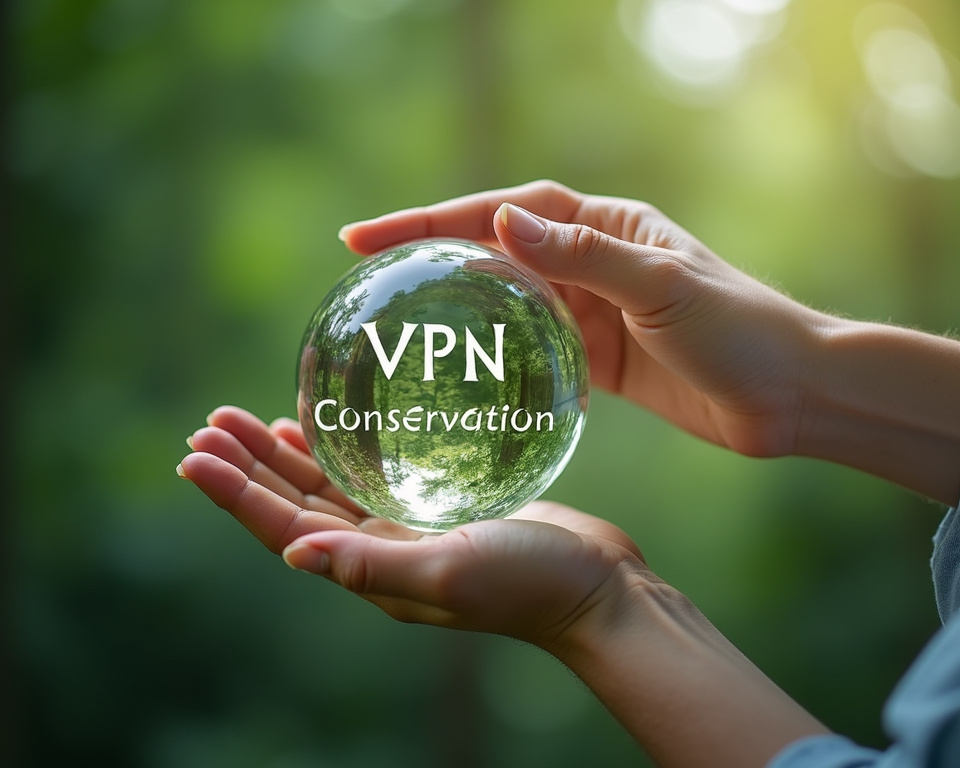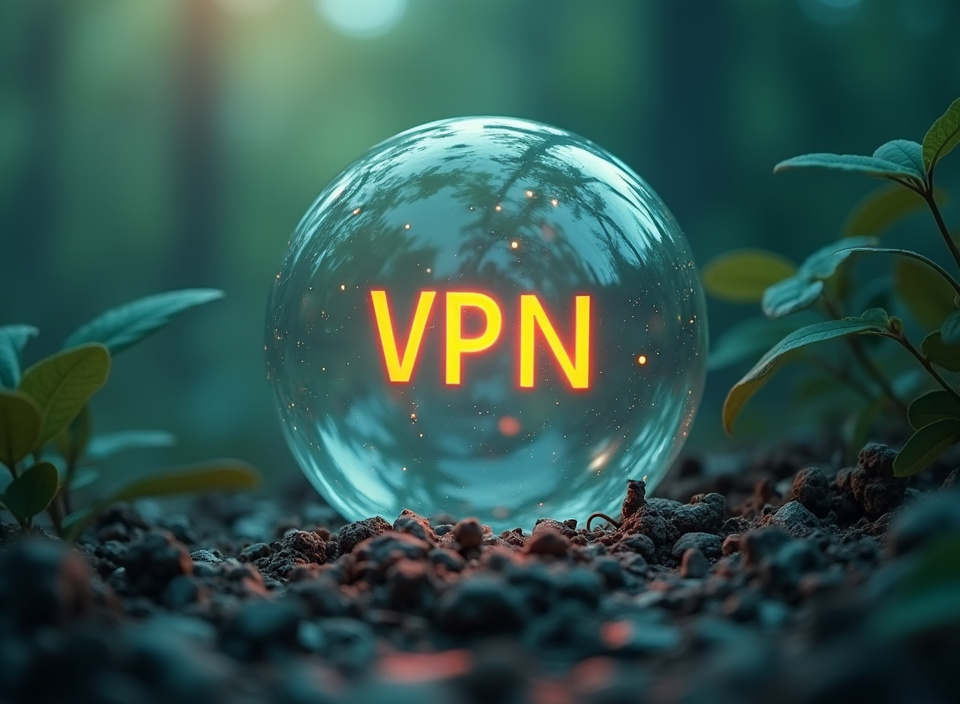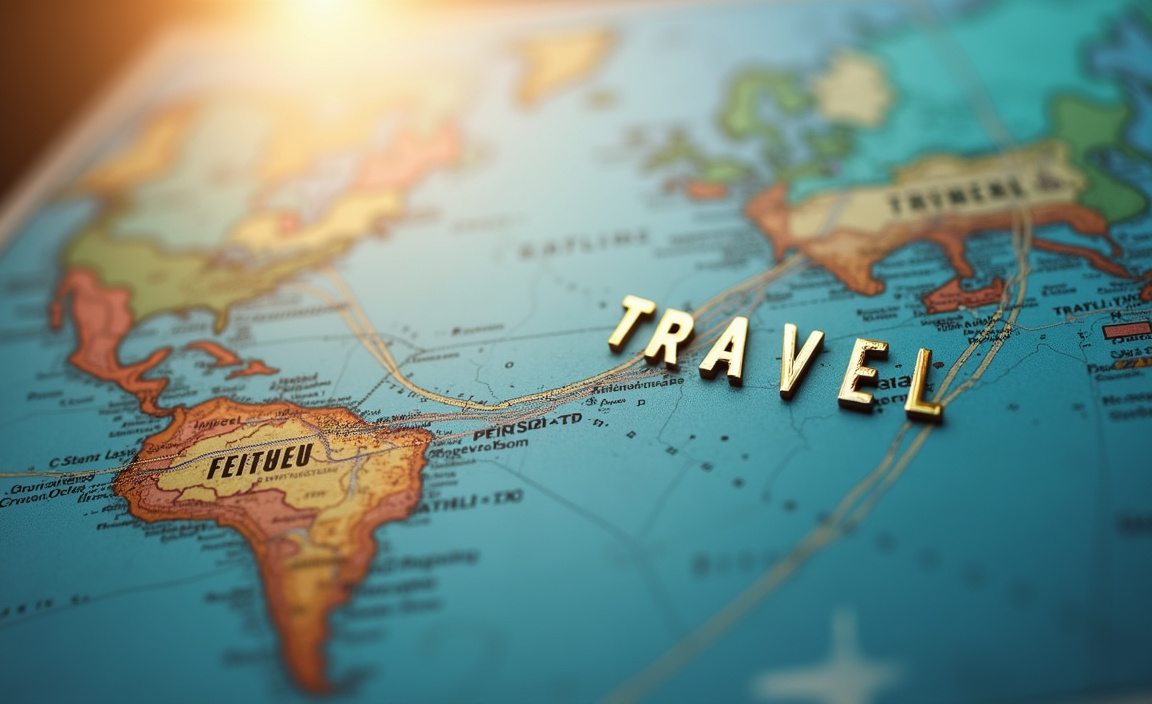Using VPNs for Wildlife Conservation Efforts

Table of Contents
Using VPNs for Wildlife Conservation Efforts: A Comprehensive Guide
In an era where technological advancements are rapidly reshaping our world, and the urgency of environmental conservation grows more acute each day, the intersection of these two domains presents promising solutions. This article explores one such solution: the utilization of Virtual Private Networks (VPNs) in wildlife conservation efforts. While VPNs are often perceived as tools for individual online privacy, their capabilities extend far beyond personal use, offering a robust set of functionalities that can significantly empower conservationists, researchers, and organizations dedicated to protecting our planet's biodiversity.
From safeguarding sensitive environmental data to enabling secure collaborative research and supporting anti-poaching initiatives, VPNs are emerging as an indispensable asset in the modern conservation landscape. Their ability to establish encrypted connections, mask IP addresses, and bypass geographical restrictions provides a secure and reliable means of operating in an increasingly interconnected and vulnerable digital world. In this comprehensive guide, we will delve into the diverse applications of VPNs in wildlife conservation, highlighting how they contribute to data security, enhance collaborative efforts, and facilitate more effective 'wildlife protection'.
The core strength of a VPN lies in its ability to create a secure, encrypted tunnel for internet traffic. This means that all data transmitted through the VPN is scrambled and rendered unreadable to anyone who might be attempting to intercept it. In the context of conservation, this is crucial for protecting sensitive information such as the locations of endangered species, anti-poaching patrol routes, and data collected through research initiatives.
Imagine a team of researchers tracking a critically endangered rhino population. They are collecting GPS data, images, and other sensitive information that, if leaked, could be exploited by poachers. By using a VPN, they can securely transmit this data from the field to a central database, knowing that it is protected from interception.
This level of security is paramount to ensure the continued safety of these vulnerable animals. Furthermore, VPNs mask the user's IP address, which is a unique identifier that can be used to track their online activity and physical location. By hiding the IP address, a VPN makes it more difficult for malicious actors to target conservationists or their organizations.
This added layer of anonymity is particularly important for those working in regions with high levels of political instability or where conservation efforts are met with resistance from powerful vested interests. The ability to bypass geographical restrictions is another key benefit of VPNs for conservationists. Many conservation organizations operate across international borders, and they may need to access data or resources that are only available in certain countries.
For example, researchers may need to access scientific journals or databases that are behind paywalls or are geo-restricted. By connecting to a VPN server located in the appropriate country, they can bypass these restrictions and gain access to the information they need. In addition to these core functionalities, VPNs can also be used to secure remote access to conservation organization's networks and servers.
This allows researchers, staff, and volunteers to connect to the network from anywhere in the world, without compromising the security of the entire system. This is particularly important for organizations that have a distributed workforce or that rely on volunteers who are located in different countries. The 'conservation VPN' is therefore much more than a simple privacy tool; it is a critical component of a comprehensive security strategy for protecting wildlife and preserving our planet's natural heritage, ensuring 'secure efforts' in every aspect of conservation work.
As the digital landscape continues to evolve and the threats to wildlife become increasingly sophisticated, the adoption of VPNs will become even more essential for ensuring the success of conservation efforts around the globe.
Second section subtitle
VPNs play a pivotal role in safeguarding 'environmental data,' a cornerstone of effective wildlife conservation. Conservation projects rely heavily on the collection, analysis, and sharing of vast amounts of data, including species population numbers, habitat mapping information, telemetry data from tracking devices, and genetic data from samples collected in the field. This data is often highly sensitive and confidential, containing valuable information that could be exploited by poachers, illegal loggers, or other individuals seeking to profit from environmental destruction.
Protecting this data from unauthorized access is paramount to ensure the safety of endangered species and the integrity of conservation efforts. Think about the scenario where researchers are using drones to map critical nesting sites of endangered sea turtles. The drone footage contains precise geographical coordinates that, if obtained by illegal egg collectors, could lead to devastating losses for the turtle population.
Similarly, data from satellite collars tracking the movements of elephants might reveal their migration routes and watering holes, information that could be used by poachers to locate and kill them for their ivory. A VPN provides a secure tunnel for transmitting data between researchers, field teams, and central databases. By encrypting all internet traffic, a VPN prevents eavesdropping and data interception, ensuring that sensitive information remains confidential.
This is particularly crucial when transmitting data over public Wi-Fi networks, which are notoriously vulnerable to hacking and data breaches. Imagine a researcher downloading data from a camera trap in a remote national park using a public Wi-Fi hotspot at a local cafe. Without a VPN, their connection could be easily intercepted, and the data stolen.
However, with a VPN, the data is encrypted, making it virtually impossible for anyone to read it, even if they manage to intercept the transmission. In addition to encryption, a VPN masks the IP address of the user, making it more difficult for malicious actors to track online activity and identify the location of data sources. This added layer of anonymity enhances the security of data transmission and protects conservationists from potential cyber threats.
Consider a situation where a conservation organization is monitoring online forums and social media sites for evidence of illegal wildlife trade. Without a VPN, their IP address could be traced back to the organization, potentially exposing them to harassment or even threats from those involved in the illegal trade. However, by using a VPN, they can mask their IP address and protect their identity, allowing them to gather intelligence without putting themselves at risk.
Furthermore, VPNs can be used to secure remote access to databases and servers, allowing researchers and field teams to access critical information from anywhere in the world without compromising data security. This is especially important for conservation projects that operate in remote and challenging environments where reliable internet access may be limited. For instance, a field biologist working in the Amazon rainforest might need to access a central database to update species sighting information or to download the latest research protocols.
By using a VPN, they can securely connect to the database from their remote location, ensuring that their connection is protected from eavesdropping and data breaches. By implementing a VPN solution, conservation organizations can establish a robust security framework that protects sensitive environmental data from unauthorized access, ensuring that it remains available for legitimate research and conservation purposes. The use of a 'conservation VPN' is therefore an essential element of any comprehensive data protection strategy.
The ability to maintain data integrity and confidentiality is not only crucial for the success of conservation efforts, but also for maintaining public trust and supporting the long-term sustainability of environmental initiatives. When conservation organizations are transparent and accountable in how they manage data, they build trust with the public, donors, and partner organizations. This trust is essential for securing funding, mobilizing support for conservation efforts, and ensuring the cooperation of local communities.
In conclusion, the protection of 'environmental data' through the use of VPNs is paramount in today's digital landscape. It ensures the safety of endangered species, the integrity of research efforts, and the overall success of wildlife conservation projects, contributing significantly to the broader goal of 'VPN for nature' advocacy.
Third section subtitle
Beyond data security, VPNs significantly enhance collaborative research efforts in 'wildlife protection'. Modern conservation often requires collaboration across geographical boundaries, bringing together researchers, scientists, and organizations from diverse backgrounds to address complex environmental challenges. The scale and complexity of these challenges, such as climate change, habitat loss, and illegal wildlife trade, often necessitate a multidisciplinary approach involving experts from various fields, including biology, ecology, sociology, economics, and law.
VPNs facilitate secure and efficient data sharing, allowing collaborators to access and exchange information seamlessly, regardless of their location. This is particularly important for international conservation projects that involve partners from different countries with varying levels of internet security and access. Imagine a collaborative project studying the migratory patterns of endangered birds across several continents.
Researchers in different countries are collecting data on bird sightings, GPS tracking, and habitat conditions. To effectively analyze this data and develop conservation strategies, they need to share it securely and efficiently. A VPN allows them to create a virtual private network that connects their research institutions, enabling them to share large datasets, research findings, and other sensitive information without compromising data security.
VPNs allow researchers to access research databases, share large datasets, and participate in online meetings and conferences securely. By encrypting all internet traffic, a VPN prevents eavesdropping and data interception, ensuring that sensitive research findings remain confidential and protected from unauthorized access. This fosters trust among collaborators and encourages open communication, which is essential for successful collaboration.
Consider a scenario where researchers are developing a new vaccine to protect endangered primates from a deadly virus. They need to share highly sensitive genetic data and research findings with collaborators in other countries. A VPN provides a secure channel for them to exchange this information, knowing that it is protected from espionage or sabotage.
This level of security is crucial for maintaining the integrity of the research and ensuring that the vaccine can be developed and deployed effectively. In addition to secure data sharing, VPNs can also be used to bypass geographical restrictions and access research resources that may be unavailable in certain countries. This allows researchers to access scientific journals, online databases, and other vital information that may be essential for their work.
For instance, researchers in developing countries may face difficulty accessing expensive scientific journals or specialized databases. By connecting to a VPN server located in a country where these resources are freely available or accessible through institutional subscriptions, they can bypass these restrictions and gain access to the information they need to conduct their research. Furthermore, VPNs can be used to conduct collaborative data analysis using cloud-based platforms.
By connecting to a VPN server located in a specific region, researchers can access and analyze data stored in cloud servers without compromising data security. This allows for efficient and collaborative data analysis, even when researchers are located in different parts of the world. Imagine a team of researchers using a cloud-based platform to analyze satellite imagery of deforestation patterns in the Amazon rainforest.
By connecting to a VPN server located in a region with high-speed internet access, they can efficiently upload, process, and analyze the data without compromising data security, even if they are located in areas with limited internet connectivity. The use of a 'conservation VPN' in collaborative research not only enhances data security but also promotes efficiency and accessibility, enabling researchers to work together more effectively to address critical wildlife conservation challenges. The ability to share information securely and access research resources from anywhere in the world is essential for advancing scientific knowledge and developing effective conservation strategies.
By facilitating seamless collaboration, VPNs contribute to the overall success of 'wildlife protection' efforts and drive innovation in the field of environmental conservation. As conservation challenges become increasingly complex and interconnected, the role of VPNs in fostering global collaboration will only continue to grow, reinforcing the idea of 'VPN for nature'.
VPNs for Services: Enhancing Security and Privacy for Subscription-Based Platforms
VPNs are increasingly vital in supporting anti-poaching initiatives, offering a range of features that can help combat wildlife crime and protect endangered species. Poaching remains a major threat to wildlife populations around the world, driven by the illegal trade in animal parts and products. Rhinos are slaughtered for their horns, elephants for their ivory, tigers for their bones, and countless other species are targeted for their meat, skins, or other body parts.
Anti-poaching teams often operate in remote and challenging environments, facing dangerous conditions and well-armed poachers. They rely heavily on technology to monitor wildlife populations, track poachers, and coordinate enforcement efforts. This technology includes camera traps, GPS tracking devices, drones, and communication systems.
However, the use of these technologies also creates new vulnerabilities, as poachers may attempt to intercept communications, hack into surveillance systems, or track the movements of anti-poaching patrols. VPNs can enhance the security and effectiveness of anti-poaching operations in several ways. First, VPNs can be used to secure communications between anti-poaching teams, headquarters, and law enforcement agencies.
When anti-poaching patrols are communicating via radio or satellite phone, their conversations could be intercepted by poachers or their associates. By using a VPN to encrypt these communications, they can prevent eavesdropping and ensure that their plans and strategies remain confidential. This is particularly important when coordinating sting operations or planning ambushes.
For example, an anti-poaching team preparing to intercept a group of poachers transporting rhino horns might use a VPN to communicate with their headquarters and coordinate the operation, ensuring that the poachers are unaware of their presence. In addition, VPNs can be used to secure data collected from camera traps and GPS tracking devices. Camera traps are often deployed in remote locations to monitor wildlife populations and detect the presence of poachers.
The images and videos captured by these cameras can provide valuable evidence of poaching activity, but they also contain sensitive information about the location of wildlife and the movements of anti-poaching patrols. By using a VPN to securely transmit this data from the field to a central database, anti-poaching teams can prevent poachers from accessing this information and using it to their advantage. Similarly, GPS tracking devices are used to monitor the movements of endangered animals and to track the activities of poachers.
The data collected from these devices can reveal valuable information about poaching hotspots and the routes used by poachers. By using a VPN to secure this data, anti-poaching teams can protect it from being intercepted by poachers or used to compromise their operations. Furthermore, VPNs can be used to protect drones used for wildlife surveillance.
Drones are becoming increasingly important tools for monitoring wildlife populations and detecting poaching activity. However, drones are also vulnerable to hacking and interception. Poachers may attempt to hack into a drone's control system or intercept its video feed to gain information about anti-poaching patrols or the location of wildlife.
By using a VPN to secure the connection between the drone and its controller, anti-poaching teams can prevent poachers from hacking into the system and compromising its operation. The use of a 'conservation VPN' in anti-poaching initiatives provides a critical layer of security that helps to protect wildlife populations, safeguard the lives of anti-poaching personnel, and enhance the effectiveness of law enforcement efforts. By securing communications, protecting data, and securing surveillance systems, VPNs contribute significantly to the fight against wildlife crime and support the long-term sustainability of 'wildlife protection' efforts.
The 'secure efforts' enabled by VPNs are essential for ensuring that anti-poaching teams can operate safely and effectively in the face of constant threats, showcasing the importance of 'VPN for nature'.
Beyond the specific applications discussed above, VPNs play a broader role in promoting overall 'VPN for nature' advocacy and supporting the long-term sustainability of conservation efforts. The ability to access information freely, communicate securely, and collaborate effectively are all essential for advancing conservation goals and raising awareness about the importance of protecting our planet's biodiversity. VPNs empower conservationists to overcome censorship, bypass geographical restrictions, and connect with audiences around the world, enabling them to share their stories, advocate for policy changes, and mobilize support for conservation initiatives.
In countries with strict internet censorship, VPNs can be used to access blocked websites and social media platforms, allowing conservation organizations to share information about environmental issues, raise awareness about endangered species, and organize campaigns to protect threatened habitats. This is particularly important in countries where the government is actively suppressing information about environmental problems or where conservation efforts are met with resistance from powerful vested interests. For example, a conservation organization working to protect the Amazon rainforest in Brazil might use a VPN to bypass censorship and share information about deforestation rates, illegal mining activities, and the impact of climate change on indigenous communities.
By reaching a wider audience, they can raise awareness about these issues and put pressure on the government to take action. Similarly, VPNs can be used to organize online protests, sign petitions, and mobilize support for conservation legislation. By connecting to a VPN server located in a country with greater internet freedom, activists can bypass censorship and participate in online campaigns without fear of reprisal.
This is particularly important in countries where freedom of speech is restricted and where activists face the risk of arrest or harassment for expressing their views. In addition to overcoming censorship, VPNs can also be used to connect with conservation communities around the world. By joining online forums, social media groups, and other online platforms, conservationists can share ideas, exchange information, and collaborate on projects.
This is particularly valuable for researchers and practitioners who are working on similar issues in different parts of the world. For example, researchers studying the impact of climate change on coral reefs in Australia and the Caribbean might use online forums to share their findings and compare their research methods. By collaborating in this way, they can gain a better understanding of the problem and develop more effective conservation strategies.
Furthermore, VPNs can be used to promote ecotourism and sustainable travel. By connecting to a VPN server located in a country with a strong ecotourism industry, travelers can access information about sustainable travel options, eco-friendly accommodations, and responsible tour operators. This can help to promote responsible travel practices that support local communities and protect the environment.
The use of a 'conservation VPN' therefore extends beyond data security and anti-poaching initiatives, encompassing a broader range of activities that promote environmental awareness, foster collaboration, and support sustainable practices. By empowering conservationists to overcome censorship, connect with global communities, and promote responsible travel, VPNs contribute significantly to the overall success of 'wildlife protection' efforts and support the long-term sustainability of conservation initiatives. The 'secure efforts' facilitated by VPNs are essential for creating a more informed, engaged, and connected global community that is committed to protecting our planet's natural heritage, truly embodying the spirit of 'VPN for nature'.
In conclusion, Virtual Private Networks are powerful tools that offer a wide range of benefits for wildlife conservation efforts. From safeguarding sensitive environmental data to enhancing collaborative research, supporting anti-poaching initiatives, and promoting overall VPN for nature advocacy, VPNs are becoming an indispensable asset in the modern conservation landscape. As the digital landscape continues to evolve and the threats to wildlife become increasingly sophisticated, the adoption of VPNs will become even more essential for ensuring the success of conservation efforts around the globe.
Embracing this technology is a crucial step towards creating a more secure, sustainable, and equitable future for both wildlife and humanity.
Stay Updated
Get the latest VPN news, tips, and exclusive deals to your inbox.




